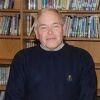As you know from time to time I use this column for reasons other than to provide grant updates and information. This is one of those occasions. I think all of us over the past two months have had enough ham, turkey, cookies and AFG to last for a while.
As a respite from all the grant headaches, I will share some good news about a recent investigation that I was part of. I know at this point you are thinking how in the world could good news and investigation be used in the same sentence?
After 15 years as a fire chief, I had that same opinion. Whether it was a cause-and-origin investigation for a structure fire or an investigation of an apparatus crash, none of them ever seemed to involve good news.
This was a bit of a different scenario. It was late in the afternoon of Sept. 6, 2014. A severe thunderstorm had just rolled through our area and my pager was going off.
I assumed it would be flooding or a tree down. Instead the dispatcher announced it was a vehicle accident with entrapment. As I proceeded down the road, my chief responded and the dispatcher gave him an update that subsequent callers confirmed entrapment and reported that the vehicle was now on fire.
First on scene
This was an automatic-aid call for my department. However, the location of the incident was closer to our station and we would probably arrive on scene before the home department.
As we approached, the scene thick dark smoke and flames were visible. At that time, there were a number of thoughts going through my head — none of them good.
The incident scene was directly across from the entrance to a state park. When we arrived, one of the park rangers informed us that the driver had been pulled from the wreckage and was in the EMS unit.
The vehicle had left the roadway and struck a wooden utility pole. The car came to rest on a grassy embankment, upright and against the pole. The top of the pole broke off in the crash, taking down wires — including a 12,470-volt line — and fell between the car and the base of the pole.
Because the power line was still charged and everyone was out of the car, we decided to just let it burn itself out until the utility provider arrived. Everyone was amazed that someone was able to pull the victim from this vehicle and not be injured or killed.
The following day, as our PIO, I was contacted by the local paper and asked about the actions of the rescuer. In her story, the reporter went to great lengths to stress the risk taken by the person in performing this rescue.
Hero recognized
The following spring, I received a letter from the Carnegie Hero Fund Commission. Although I had never heard of the group, it was established by industrialist and philanthropist Andrew Carnegie in 1904 to recognize civilian heroism throughout the United States and Canada.
The group had received a nomination for Steven A. Martin, the individual who had rescued the accident victim six months earlier. They asked that I fill out a questionnaire on the incident, which was followed up by a telephone interview from their investigator.
He informed me that he was also going to interview the EMS crew, the park rangers that were on scene as well as other witnesses. He later got back in touch and asked if I had any photos of the scene.
Months went by and I never heard anything. Then, on Dec. 17, I received an email that Martin was one of 24 people nationwide selected to receive the Carnegie Medal and a financial grant for his heroic actions — OK, this tale does have some connection to grants after all.
I was proud and pleased to have been a part of this process.
You would like to read a synopsis of his heroic actions and more information on the Carnegie Medal and the history of the Carnegie Hero Fund Commission at the web site and Facebook page. You’ll also find the address and phone number to nominate a civilian hero.
Take the time to read about Martin and the other winners. You’ll discover that many performed daring rescues involving fire, swift water and in one case a runaway vehicle.
It’s great to pause and recognize those who, with little or no training, helped avert disaster. For me, it was an honor to play a small role in helping one hero get that recognition.


